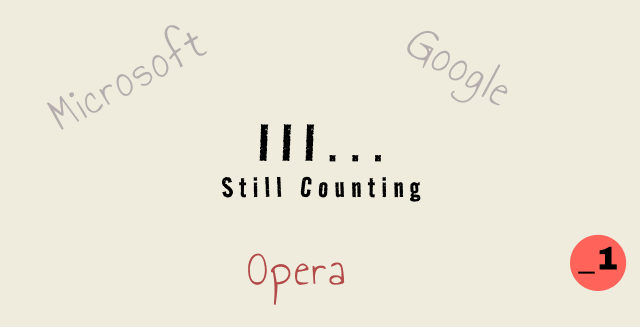New Player in the A.I. Race - Opera
Opera is integrating AI-generated content services into its web browser products.
Opera, the Norwegian Web browser made headlines a few days ago.
And as soon as I got to know that, I knew I had to write a post on it.
In the game of AI search, we have a new player. And the more players there are, the more fun it is!


Though Opera has only a 2.4% share of the web browser market, it has a loyal and true fan base. A base that appreciates its unique and innovative features. Opera has more than 380 million monthly active users across its desktop browsers, mobile browsers, and other services. So no doubt, it is still pretty much in use today (even if you haven't used it or only heard its name).
Opera does not want to left behind by Microsoft and Google, which have been showing off their fancy AI-powered technologies. Opera is joining the AI party by adding AI to its online browsers and content apps.
What's the Opera "A.I."?
(I intentionally used the wording "Opera A.I." as it sounded similar to "OpenAI." haha.)
Opera is a web browser that is frequently mentioned in web browser “textbooks”.Because the common media either use Google Chrome or Safari for web browsing, But with the latest A.I. chatbot development by Microsoft, Bing is also getting somewhere and giving solid competition to Google.
But now we are talking about opera. Opera, as mentioned earlier, has hardly a 2.4% share of the web browser market. And that's quite a short range. But with these new integrations of A.I. tools, Opera can have new hopes of getting a larger share of the web browser market.
Opera, the Norwegian web browser that dares to be different, finally realised that generative AI is the next big thing in online browsing. It is adding AI-generated content (AIGC) services to its PC and mobile browsers that allow users to create cool stuff like the new A.I. browsers we got to see. This (of course) includes features like getting images, text, and audio with just a few clicks. Or, shall I say, with a few "commands" to the ChatBot?
"Following the surge in demand and popularity of the many new services like ChatGPT and Midjourney, we are working with both multiple partners and in-house on different solutions," says Krystian Kolondra, Opera’s executive vice president for PC browsers.
What to expect?
Opera has always been good at making its web browser work well with other popular services like WhatsApp, Telegram, Spotify, and TikTok. Kolondra says that Opera has been playing with AI for about 10 years, but it got more serious after seeing what Microsoft and Google were doing. "The work on integrating AIGC services into our browser products is relatively new but is being accelerated significantly," he says.
AIGC services by Opera claim to offer a comprehensive suite of solutions for businesses and individuals who want to leverage the power of artificial intelligence and generative content. So in short, AIGC services by Opera are a bunch of cool features that let you use and make AI-generated content with ChatGPT-powered platforms like TikTok, Telegram, and WhatsApp.
Opera is integrating these services into its PC and mobile browsers, as well as its news and gaming products. Opera claims that these services will enhance the browsing experience and offer new possibilities for content creation and consumption.
Opera is not afraid to experiment. And it is noticeable in the fact that it tried and implemented numerous ideas in its web browser. It has offered users a range of products and services in the past that cater to different needs and preferences. And these offers were made possible in large part by the incorporation of many well-known apps into its browser.
Opera provides users with a smooth and customizable browsing experience, with options such as ad blocking, VPN, battery saver, dark mode, a personal news feed, video pop-out, snapshot tool, crypto wallet, flow sync, and more. While this seems overwhelming, the fact that this browser gives so many customizable options to its users is remarkable. Opera’s browsers, just like its competitors, also support various extensions and themes that allow users to enhance their functionality and appearance.
Here is one feature that seems kinda interesting to me.
Opera has revealed a new feature for its browser’s sidebar. The ‘shorten’ tool, which is driven by ChatGPT, may be used to produce summaries of webpages and publications.
Conclusion
Opera may have a small market share, but it has a big vision for the future of online browsing. Opera is a web browser that is demanding more attention and appreciation. And for the time being, let’s see what we can expect.
Till that time, I’ll leave the readers with a question: -
“Should Other Web Browser companies also follow the same trend and make their own web browsers?”
Let me know in the comment section.
See you on the flip side. Stay awesome and ‘creative’.









